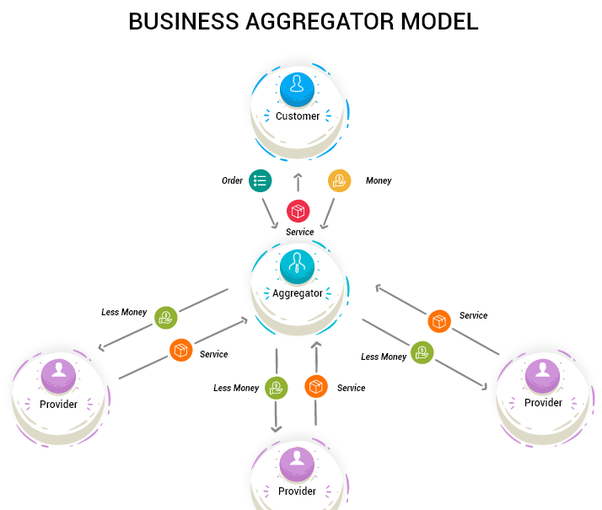Have you ever wondered how start-ups like Uber and Ola generated so much value in such less time? Have you ever been curious about their business model?
Well, you must have been, especially considering how these companies have become inspirational and aspirational brands for every professional who looks for a successful career.
What is the mind-boggling business model?
Known as the Aggregator business model, it allows brands like Uber to function with low capital investment yet high-profit margins. Aggregator business model, like the name suggests, brings together many aggregators under one wing, providing one common product or service on a mass scale. Think about it, if you ever talk to an Ola Cab driver, he either owns the cab or has it rented, but never received it from Ola.

Infact, he is an aggregator in Ola’s business model, where the company signs a deal with the cab owners, taking a certain amount of revenue and commission and setting certain service standards. The deal is crucial as it dictates the quality and prices that any partner will have to follow on behalf of the overall brand, bringing in uniformity and clarity for customers.
How does this model generate long-term revenue?
The primary benefit of this model is the non-requirement of capital funding. Airbnb doesn’t have to build apartments for rent and nor does Oyo have to construct hotels, they just sign contracts. They initiate partnerships on the basis of the contracts that further helps them to generate revenue for the brands.

Secondly, there are always discounts, additional services and dynamic pricing that plays a role in estimating the costs and profits for an aggregator and the company it works with.
How to enter this world?
Well, firstly do market research to understand the available unorganized industry, the customer base and what benefits can arise if an aggregator model is established in the industry. This means making the industry more organized, creating fixed pay models and setting commission values.
After this, approaching interested aggregators, gaining support and finalizing deals is also a task, especially with legal standards in place. Now, as a brand, you have to place your marketing strategy, train aggregators to provide uniform service/products and dodge losses.
It is a run that might leave you breathless but then brings warmth to your heart. An aggregator business model goes light on your pocket if planned well and might as well make your dream company stand along with successful startups like Uber. Don’t let the entrepreneurial spirit in you die, go aggregate!
Also Read: Difference Between International, Multinational, Transnational & Global Companies
















